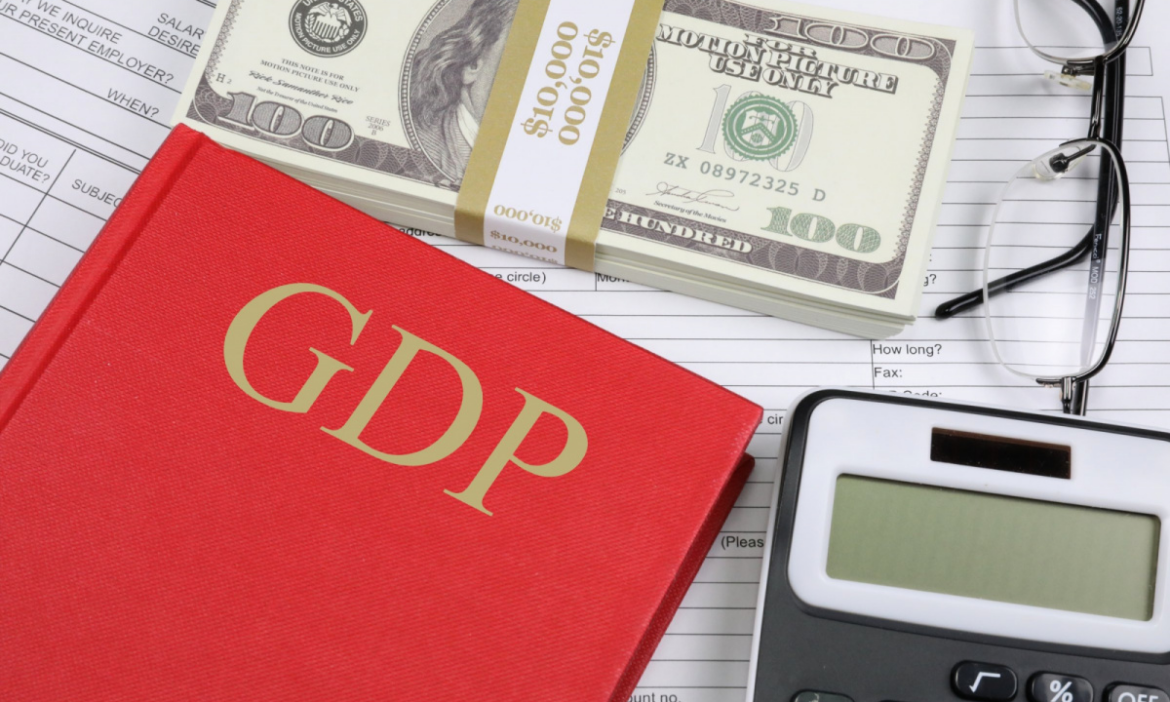Gold has all the potential to go unprecedentedly high. But silver will be gold on
Site:
Precious metals news
 At the Current Pace, the U.S. Would Add $1 Trillion in Federal Debt Every 45 Days
At the Current Pace, the U.S. Would Add $1 Trillion in Federal Debt Every 45 DaysOct 13, 2023 - 06:44:02 PDT
The U.S. Federal debt is skyrocketing, recently escalating by $40 billion in a single day, reaching a staggering $33.55 trillion. With an astounding pace of potentially adding $1 trillion to the debt every 45 days, the financial future appears precarious. From 2008, the debt has catapulted by $24 trillion, now 3.8 times its initial size. Despite already increasing by over $2 trillion since the resolution of the debt ceiling crisis, with the ceiling now effectively uncapped until January 2025, the ultimate scale of U.S. debt remains alarming.
Oct 13, 2023 - 06:36:01 PDT
Bolivia is spiraling into a severe economic crisis, highlighted by the drastic depletion of gold reserves and mounting debt. The hasty sale of 17 tonnes of gold, a precarious attempt to navigate financial straits, has jeopardized its economic stability, while vanishing investor confidence and opaque handling of foreign currency reserves darken Bolivia's fiscal future amidst an escalating balance of payments catastrophe.
Argentina's central bank hiked the benchmark interest rate to 133% due to surging inflation, which registered at 12.7% monthly and 138% annually, ahead of the presidential election amidst a deepening economic crisis. With the nation grappling with soaring prices, diminished wages, and eroded savings—pushing 40% of the population below the poverty line—an end-of-year inflation rate exceeding 180% is anticipated.
Skyrocketing vehicle ownership costs, now hitting an average of $12,000 annually, alongside surges in other essential expenses like healthcare, are placing American households in a precarious financial situation. The substantial uptick in prices for both new and used vehicles post-2020 and ballooning big-ticket essential expenses are shrinking budgetary flexibility, indicating an increasingly fragile economic stability for numerous households amid these escalating costs.
Oct 13, 2023 - 06:05:21 PDT
Nobel Laureate Paul Krugman boldly declared the "war on inflation" won, with "very little cost," a statement met with skepticism amidst the reality that the average American family is now $7,400 poorer than in January 2021. Contrasting his optimism, the palpable impacts of inflation and economic strategies under "Bidenomics" present a stark, financially-straining reality for many, suggesting that the alleged victory may indeed have come at a significant, albeit unevenly distributed, cost.
Oct 13, 2023 - 06:02:16 PDT
Bidenomics is under intense scrutiny as indicators hint at catastrophe. Rising interest rates, a tool deployed to combat spiraling Federal spending, have triggered a concerning trend: bank credit growth has contracted to -0.41% YoY, marking 10 consecutive weeks of negative terrain. Meanwhile, short-term loan interest payments have skyrocketed, nearing a staggering 10%, magnifying the financial stress under the current economic strategies.
Great news! The inflation war is over and we won! At least that's how Paul Krugman sees it. But he's playing tricks with the data and making assumptions that are meaningless in the real world. In this episode of the Friday Gold Wrap, host Mike Maharrey dissects Krugman's claims in light of the September CPI data. He also talks about market reaction to the CPI and shares some interesting gold news from Zimbabwe.
 JPMorgan’s Jamie Dimon Warns This Is ‘The Most Dangerous Time’ for the World in Decades
JPMorgan’s Jamie Dimon Warns This Is ‘The Most Dangerous Time’ for the World in DecadesOct 13, 2023 - 05:44:46 PDT
CEO Jamie Dimon describes the global situation as potentially the most dangerous in decades, citing the Ukraine war, Middle East conflict, and significant financial threats from towering national debt and fiscal deficits. He stresses escalated risks from persistent high inflation and interest rates, alongside liquidity concerns amid Federal Reserve actions, with a gloomy outlook on potentially soaring interest rates ahead.
Gold is being touted as a critical investment, with experts urging purchases now, irrespective of current prices. The US Federal Reserve's monetary tactics, like interest rate hikes, draw parallels to the 1970s scenario, suggesting a significant gold price surge is imminent. Historical patterns indicate that with the current economic climate and trends in real interest rates, gold prices could potentially exceed US$3,000/oz, and even reach up to US$4,500/oz. Investors are advised to capitalize on gold's potential as a hedge against the unpredictable nature of paper assets.
 El-Erian: Stocks and Bonds Are in for a ‘Painful’ Ride and Cash and Cash-like Assets Is Safer
El-Erian: Stocks and Bonds Are in for a ‘Painful’ Ride and Cash and Cash-like Assets Is SaferOct 12, 2023 - 12:41:45 PDT
Economist Mohamed El-Erian strongly advises turning to cash and cash-like assets as a shield against increasing market volatility. With stocks and bonds facing turbulence, El-Erian has significantly bolstered his holdings in cash and similar assets. Concurrently, he warns of a potential economic downturn, suggesting heightened caution in other investment avenues.
Brian Riedl warns of an impending "debt crisis" as the 10-year bond rate surges to 4.7%. Washington's failure to secure lower interest rates combined with rising deficits puts the economy at significant risk. Despite current market optimism, a high rate above 4% could spell disaster, not only for the bond market but also equities. With historic data suggesting negative impacts, about a third of Russell 2000 companies aren't profitable, a record high since 1985. The stock market's current vulnerability echoes the concerning patterns of 1987, hinting at potential turmoil ahead.
On October 13, 1989, "Black Friday” sent shockwaves through Wall Street... What can we learn about the crisis today?
 The Biden Administration Borrowing Binge is Driving an ‘Unsustainable’ Rise in Global Debts
The Biden Administration Borrowing Binge is Driving an ‘Unsustainable’ Rise in Global DebtsOct 12, 2023 - 09:42:54 PDT
The IMF warned of Joe Biden's high borrowing pushing global debt towards instability, primarily driven by the US and China. Contrary to Biden's claims, US debt reached an alarming $33 trillion. The IMF anticipates US debt will soon surpass 100% of GDP. While Treasury Secretary Janet Yellen asserts the US's debt interest is manageable, the Congressional Budget Office voices significant concerns about the rising debt's implications.
Credit card debt is a key indicator of how healthy U.S. households are financially. The average credit card balance is $10,170 per household
- 56% have more credit card debt than last year.
- 57% believe it will take over a year to clear their debt.
- Over 25% would accrue debt for non-essential spending.
- 45% feel stressed due to their credit card debt.
- 85% think they manage their finances better than the government.
- Over 33% would do anything to be free of credit card debt.
 U.S. Income Would Have to Jump to a Whopping 55% To Make Buying a Home ‘Affordable’
U.S. Income Would Have to Jump to a Whopping 55% To Make Buying a Home ‘Affordable’Oct 12, 2023 - 08:52:39 PDT
The U.S. housing market is alarmingly unaffordable for most potential buyers. Following the pandemic, housing prices soared. Yet, in 2022, mortgage rates spiked to over 7%, compounding the issue. Expert analysis reveals that for housing to be deemed affordable, U.S. incomes would need a staggering 55% hike or a substantial reduction in prices or mortgage rates.
US speculative-grade companies face increased refinancing and default risks due to sustained high interest rates and limited credit access, says Moody’s Investors Service Inc. Debt maturing between 2024 and 2028 for junk-rated firms is at $1.87 trillion, a 27% rise from last year's predictions. This rise in maturities, amidst unfavorable economic and credit conditions, amplifies the companies' refinancing and default threats.
"Hotter than expected."This seems to be a recurring theme when it comes to price inflation.The September CPI data gave us another variation on that tune. And it should once again remind us that the Federal Reserve is nowhere near its 2% target.
An important error in statistical analysis is that mathematical economists have lost sight of what their beloved statistics represent —none more so than with GDP.In this analysis, I explain why GDP is simply the total of accumulating currency and credit which is wrongly taken to reflect economic progress — there being no such thing as economic growth, only the growth of credit. Once that point is grasped, the significance of this basic error becomes clear, and the fiat currency paradigm is revealed for what it is: a funny money game that will go horribly wrong.
The federal government's annual deficit for 2023 appeared to be $1.7 trillion, but due to irregularities involving President Biden's now-overturned student debt cancellation plan, the real deficit for 2023 is closer to $2 trillion. This marks an increase from 2022 and reignites debates in Washington over the expanding deficit, exacerbated by factors like lower tax receipts and higher interest rates.
First-time jobless claims in the U.S. held steady at 209k, with un-adjusted claims dropping to a year low of 175k. Ohio saw the largest decrease in claims, while California and Texas experienced a surge. Continuing claims rose slightly to 1.702 million. Seasonal distortions could affect these numbers in the coming months. WARN Act data, indicating potential future layoffs, suggests an increase in claims may be imminent.











